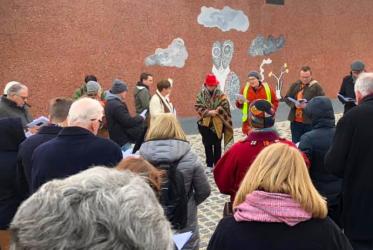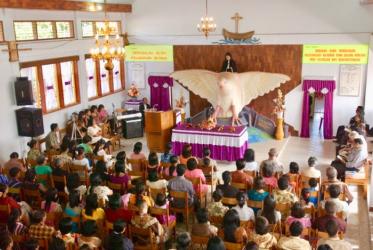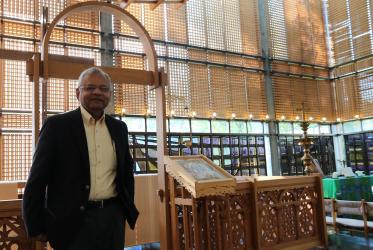Displaying 81 - 100 of 200
Peacemakers at work in Sri Lanka
29 April 2019
WCC condemns massacre of farmers in Philippines
12 April 2019
Church in Bali empowers youth to break cycle of poverty
18 March 2019
Thursdays in Black: sharing support, transforming lives
21 February 2019
Eager ecumenists embark on new missions
04 February 2019
WCC offers condolences in wake of Indonesia tsunami
23 December 2018
All pilgrim routes lead to COP24
11 December 2018
#WCC70: At the end of an assembly
16 October 2018








